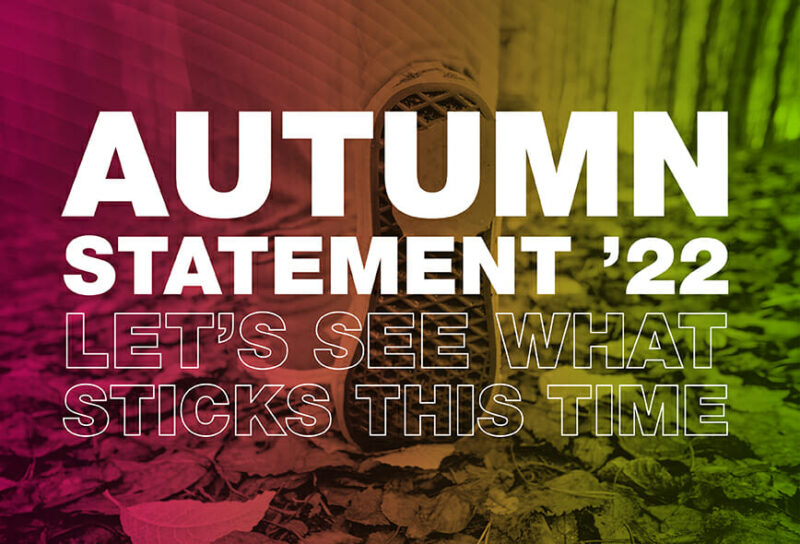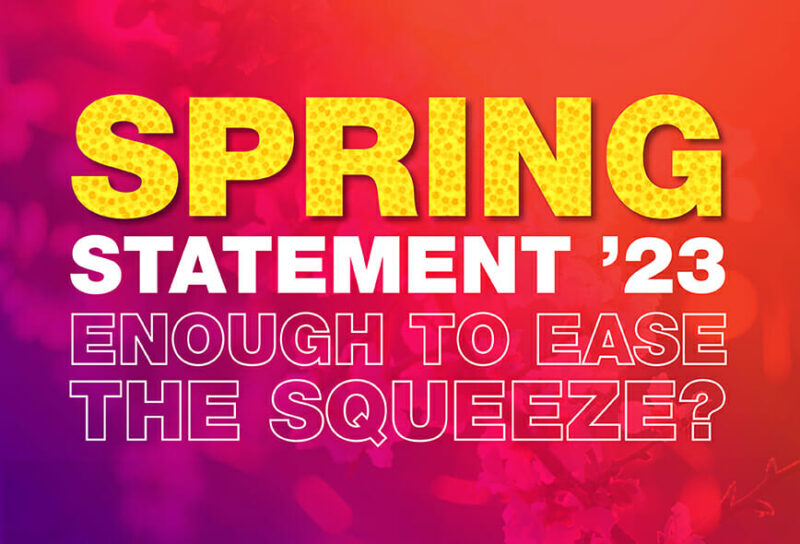KEY HIGHLIGHTS
OK, less than eight weeks after the mini Budget debacle, Jeremy Hunt got to his feet in front of a packed commons – acknowledging that the UK is already in recession.
This Autumn Statement (originally intended to be revealed on 31st October), has been heavily trailed by the Chancellor as involving ‘decisions of eye-watering difficulty’.
Just how eye-watering the impact will be to business and individuals will be revealed over time.
Effectively, the government aims to fill a black hole of around £55bn by all accounts – with a combination of spending cuts and tax rises.
These are some of the highlights from the Chancellor’s 50-odd minute statement:
- There’s a further 2 year freeze (until April 2028) in income tax thresholds which means that millions more people will be paying more tax.
- NI and inheritance tax thresholds also frozen until April 2028.
- Highest earners will start paying the top rate of tax at £125,140 from April 2023 (down from £150,000).
- The tax-free allowance for dividends will reduce from £2,000 to £1,000 from April 2023 and to £500 from April 2024.
- The capital gains tax annual exemption, currently £12,300, will reduce to £6,000 from April 2023 and £3,000 from April 2024.
- No changes to the headline rates of capital gains tax, income tax, VAT or employment taxes were announced. Annual Investment Allowance to remain at £1m permanently.
- R&D enhanced deduction reduced from 130% to 86% for SMEs for expenditure incurred from 1 April 2023 (broadly 25% net benefit reduced to 21.5%).
- Tax credit rate for loss making companies reduced to 10% from 14.5% (33% net benefit reduced to 19%).
R&D Expenditure Credit (RDEC) increased from 13% to 20% for expenditure incurred from 1 April 2023 (broadly 10.5% net benefit increased to 15%). - The minimum wage for those over 23 is increased from £9.50 to £10.42.
- The windfall tax on energy firms is increased from 25% to 35% – and extended to March 2028.
- Households on means-tested benefits will get £900 support payments next year.
- Electric vehicles will no longer be exempt from car tax from April 2025.
- 100% first year allowances on electric car charging equipment has been extended to 31 March 2025 for Corporation tax and 5 April 2025 for Income tax.
So, let’s see what sticks this time round. It would appear more likely than Kwasi Kwarteng’s last attempt.
AS THE DUST SETTLES
Read our comprehensive guide to the highs and lows of the Autumn Statement HERE.
























